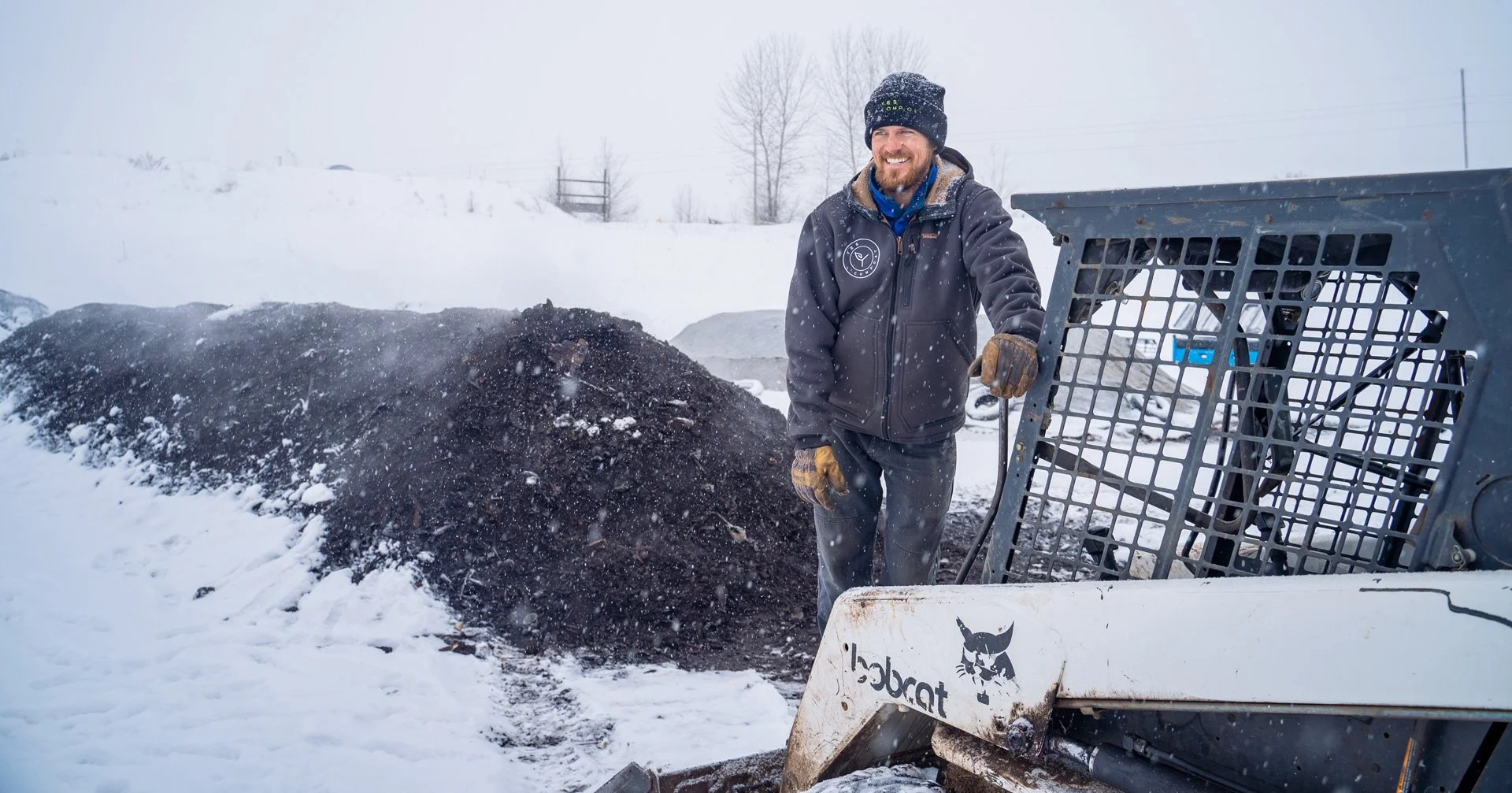Frequently Asked Questions (FAQs)
-
When food waste is buried in the landfill, it breaks down without oxygen and creates methane gas and a toxic liquid called leachate. Methane is a powerful greenhouse gas, nearly 30X more effective at trapping heat in our atmosphere than carbon dioxide. Leachate contains liquid pollutants that threaten our groundwater, rivers, and streams. Both the air pollution and water pollution are expensive to contain/manage at a landfill and can be avoided by composting the material instead.
-
YES! We are a commercial compost facility and due to the volume of material we process there is a significant amount of heat generated (+150 F), therefore, things like meats and bones decompose very quickly. In a backyard compost bin they would stick around for a number of weeks and attract animals/pests.
-
Maybe. We are able to accept all compostable products that are specifically designed and certified to be processed in an industrial/ commercial composting facility. The products MUST BE certified through either BPI, TUV, or CMA and bear the certification mark on the product itself or the packaging that it comes in. Our policy is "guilty until proven innocent" so if you have any questionable items, please contact us prior to including them in the bucket. Contamination is an expensive problem for us to deal with, so preventing it from entering the bucket is paramount to us providing an affordable service.
-
NO! Biodegradable is an unregulated term that implies things will naturally degrade in the presence of microorganisms and sunlight. There is no specification as to how long it will take to break down, or the toxicity of the residue. So, essentially everything on the planet is biodegradable. Alternatively, “compostable” means that the item will break down in less than 90 days in a compost pile and NOT leave any toxic chemical residues.
-
Green-washing is a term that describes company branding that misleads a consumer into thinking that their products are compostable with the goal of improving brand image and selling more products. The color green, images of trees and leaves, as well as words like "all-natural", "biodegradable", "earth-friendly", etc, are examples of RED-FLAGS that generally mean the products are NOT compostable. Please pay close attention to this, and remember to ask before assuming that something is just based on the branding language and imagery.
-
We recommend keeping a small (1 gallon-ish) container in your kitchen to capture food-prep and leftover scraps, and keeping the bucket in a garage or outside out of reach of animals that may be attracted to it like birds and dogs. Shuttle the small bin from the kitchen out to the bucket every few days to eliminate odors in the kitchen and keep the lid on the bucket to contain odors within the bucket. Keeping the bucket out of direct sunlight will also help reduce odors.
-
As much as we would like to say the bucket will never smell, it depends on what you put inside! Things like meats and dairy can generate odors especially if the bucket is kept in direct sunlight and left open. Keep it in a cool place and only remove the lid when you are adding more material. This will prevent any odors from escaping from the bucket. At each service we replace your bucket with one that has been pressure washed with 140 degree water. We take care of the gross washing part so you don't have to!
-
Nope! In general we aren't a fan of any single-use items so we have prevented the need for a liner bag by opting to wash the bucket for you every time! Liner bags are also prone to failure, and juices leak through them creating a gross bucket over time if a liner bag is used instead of regular washing.

